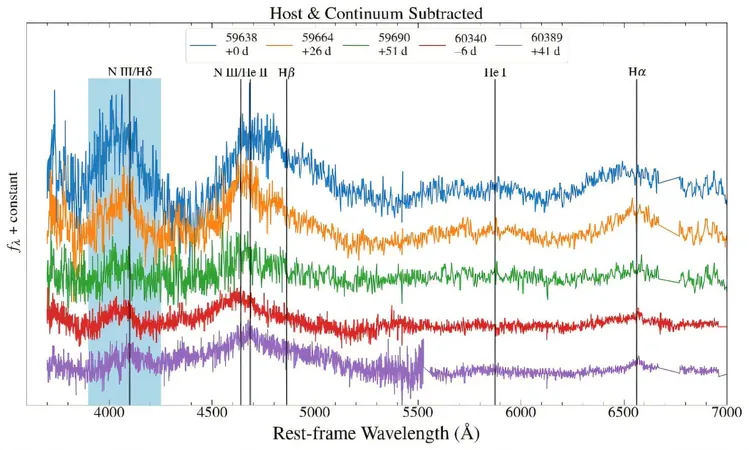
How a Groundbreaking Virology Experiment Helped a Scientist Defeat Her Own Cancer!
2024-11-13
Author: Ming
A Bold Decision in the Face of Adversity
In a remarkable and unprecedented achievement, a virologist named Beata Halassy from the University of Zagreb made headlines for treating her recurrent breast cancer with an innovative approach: virotherapy. This bold step away from conventional cancer treatments has captivated both medical experts and the public.
The Story of Beata Halassy
In 2020, Halassy found herself facing the devastating news that her breast cancer had returned for the third time. Diagnosed initially in 2016, she endured a mastectomy followed by two relapses in 2018 and again in 2020. Rather than opting for another round of chemotherapy, Halassy decided to explore experimental treatment through oncolytic virotherapy (OVT), a cutting-edge technique that utilizes reengineered viruses to target and combat cancerous cells while also stimulating the body's immune system to fight back.
Understanding Virotherapy
Virotherapy represents a revolutionary approach where viruses are transformed into therapeutic agents tackling diseases like cancer and genetic disorders. While OVT had primarily been applied to early-stage cancers, Halassy's daring decision to employ this technique for her stage 3 cancer marked a significant departure from the norm.
Documentation of a Pioneering Treatment
Halassy's case was documented in her research paper, titled 'An Unconventional Case Study of Neoadjuvant Oncolytic Virotherapy for Recurrent Breast Cancer,' published in the journal *Vaccines*. The detailed account illuminated her process of selecting two specific viruses – a measles virus and a vesicular stomatitis virus (VSV) – that are known to infect the type of cells associated with her cancerous tumors. Both viruses have previously been involved in clinical trials for OVT, showing potential in treating cancer, though their safety and efficacy for advanced-stage conditions remained largely untested.
Positive Outcomes from Virotherapy
For two months, Halassy’s colleague administered the viral cocktail directly into the tumor, resulting in outstanding outcomes. Reports indicate that the tumor not only shrank and softened but also detached from surrounding skin and muscle, setting the stage for a successful surgical removal. Remarkably, analyses indicated that her immune system was actively engaging and attacking the cancer cells, showcasing the dual action of the virotherapy.
Ethical Concerns and Future Implications
Despite the success of her unconventional treatment, Halassy’s approach raises substantial ethical concerns within the medical community. Critics worry that her self-experimentation may encourage others to forgo traditional treatments, risking their health for experimental therapies that have not been thoroughly vetted. Jacob Sherkow, a researcher specializing in law and medicine, expressed apprehension about the implications of publishing her findings, emphasizing that such self-experimentation should not be considered a standard treatment pathway.
Conclusion: A Dual-Edged Sword
While Halassy’s inspiring story sheds light on the potential of virotherapy, it also underscores the importance of careful consideration in cancer treatment decisions. As we move toward innovative medical solutions, the balance between exploration and ethical responsibility will undoubtedly shape the future landscape of cancer treatment. Stay tuned for more updates as this fascinating story continues to unfold!



 Brasil (PT)
Brasil (PT)
 Canada (EN)
Canada (EN)
 Chile (ES)
Chile (ES)
 España (ES)
España (ES)
 France (FR)
France (FR)
 Hong Kong (EN)
Hong Kong (EN)
 Italia (IT)
Italia (IT)
 日本 (JA)
日本 (JA)
 Magyarország (HU)
Magyarország (HU)
 Norge (NO)
Norge (NO)
 Polska (PL)
Polska (PL)
 Schweiz (DE)
Schweiz (DE)
 Singapore (EN)
Singapore (EN)
 Sverige (SV)
Sverige (SV)
 Suomi (FI)
Suomi (FI)
 Türkiye (TR)
Türkiye (TR)